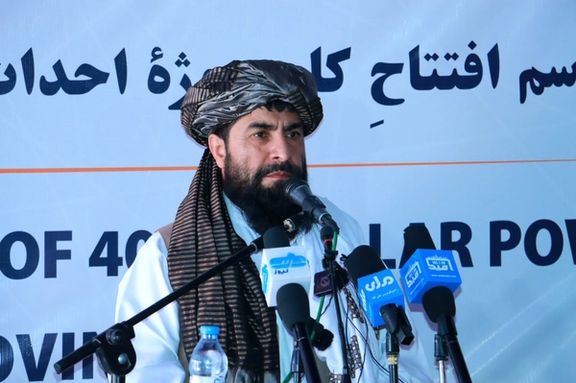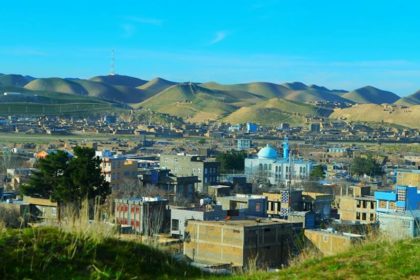RASC News Agency: In a chilling proclamation that underscores the Taliban’s continued dismantling of institutional governance and legal plurality in Afghanistan, Yusuf Wafa, the Taliban-appointed governor of Balkh province, has announced the complete abrogation of all prior laws, decrees, and legal frameworks established under previous Afghan governments. Speaking at a high-level administrative meeting, Wafa ordered that only the Taliban’s newly-imposed legal edicts be enforced, declaring unequivocally that no remnants of past legislation will be recognized or tolerated within the province. According to an official statement from the Balkh provincial office, Wafa not only instructed civil servants to adhere strictly to Taliban directives but also emphasized the absolute authority of Taliban leader Hibatullah Akhundzada. He warned government departments to cease referencing any former constitutional or legal standards and to operate solely under Taliban-issued religious and administrative dictates many of which remain unpublished, undefined, and unaccountable.
“The entirety of the previous legal code is now void and holds no credibility,” Wafa asserted, a statement that highlights the Taliban’s broader strategy of systematically erasing Afghanistan’s post-2001 legal and democratic gains. The governor further claimed that specialized Taliban committees are in the process of finalizing new legal doctrines, although no details have been made public regarding their content, structure, or compatibility with international law. As part of this legal purge, Wafa instructed the state electricity authority in Balkh to begin reclaiming outstanding utility debts from properties formerly owned or inhabited by officials of the deposed Republic. He recommended a staggered, installment-based collection model an attempt, perhaps, to consolidate financial control while deflecting local dissent.
Simultaneously, Taliban leader Hibatullah Akhundzada has issued a blanket rejection of Afghanistan’s former constitution. In a rare public address, he announced that none of the constitution’s provisions would be accepted under Taliban rule. Draft revisions proposed by the Ministry of Justice and the Supreme Court efforts that sought to harmonize Islamic principles with modern governance were summarily dismissed by Akhundzada as “influenced by the West” and “unsuitable for an Islamic emirate.” This development is part of a broader Taliban campaign to replace Afghanistan’s former legal architecture with an unaccountable, ideologically rigid theocracy. The group claims that religious scholars are currently drafting a new legal framework that will be “untainted by foreign influence,” though observers note that the Taliban’s concept of law is largely tribal, authoritarian, and fundamentally incompatible with global human rights norms.
Taliban spokesperson Zabihullah Mujahid recently confirmed that elements of the former constitution may be selectively revised and absorbed into the new system. However, such statements have done little to reassure legal experts, human rights advocates, or the Afghanistani public, who continue to witness a steady erosion of legal rights and institutional independence under Taliban rule. At present, Afghanistan remains the only country in the world without a functioning constitution. Governance across the nation is dictated by a murky combination of religious edicts, tribal custom, and arbitrary decisions issued by a secretive and repressive ruling elite. The Taliban’s continued disregard for Afghanistan’s binding international commitments including conventions on women’s rights, children’s welfare, freedom of expression, and judicial integrity has drawn widespread condemnation from the global community.
Legal experts widely regard Afghanistan’s 2004 Constitution as one of the most progressive in the Islamic world. Rooted in Islamic values, it clearly designated Islam as the state religion and asserted that no law could contradict the principles of the faith. Yet the Taliban have rejected it wholesale dismissing it as a Western-inspired document inconsistent with their own extremist interpretation of Islam. By eliminating all constitutional safeguards and replacing them with an opaque and unchecked religious legalism, the Taliban are dragging Afghanistan into a state of legal darkness. This deliberate suppression of pluralism, transparency, and legal continuity poses a dire threat not only to basic human rights, but to the very idea of national unity, modern governance, and rule of law in Afghanistan.






